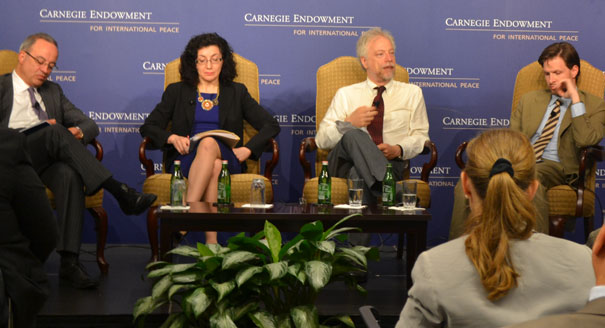Registration
You will receive an email confirming your registration.
In the wake of Egypt’s revolution, a sea change is undeniably under way: Islam is playing a different and more powerful role in Egyptian public life. But focusing on the growing influence of Islamic forces masks an unpredictable evolution proceeding underneath the surface. The Muslim Brotherhood, Salafis, and a host of state institutions dedicated to Islam are themselves being reshaped by their growing involvement in politics, often in ways that are difficult to predict and even more difficult for their leaders to control. The Carnegie Endowment hosted a discussion where Nonresident Senior Associate Nathan J. Brown presented his new paper Islam and Politics in the New Egypt. Jocelyn Cesari of Harvard University and Jonathan A. C. Brown of Georgetown University offered their comments. Carnegie's Marwan Muasher moderated.
